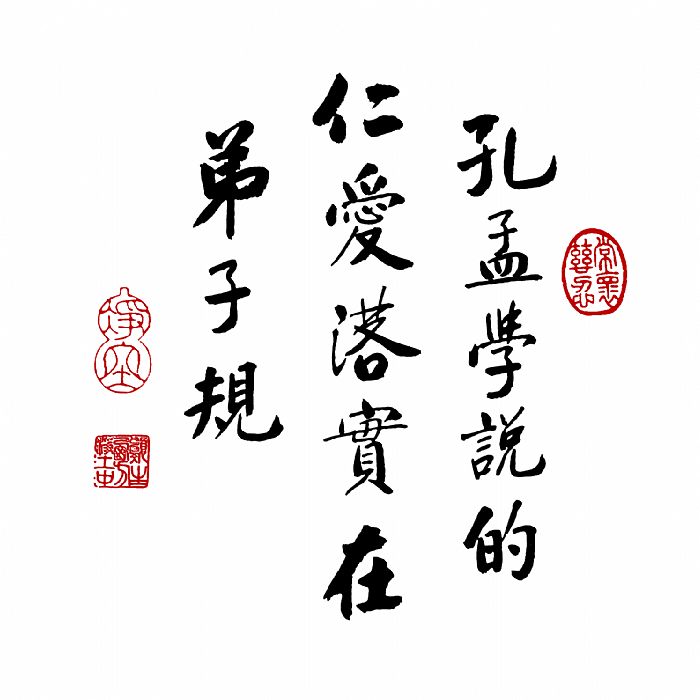 Click on picture to see original size. 点击图片可看原图。
Click on picture to see original size. 点击图片可看原图。 Thursday, June 17, 2010
Wednesday, June 16, 2010
Meat Consumption Contributes to World Hunger
Meat production is grossly wasteful of our Earth’s resources
While the cause of world hunger is multi-faceted , meat consumption is a contributing factor. This is because much Third World grain and other food is fed to animals (to produce cheaper meat to be eaten in developed countries), not to hungry Third World people. World hunger adds another weighty issue to the vegetarian cause.
Worldwide, 100s of millions of people live with chronic hunger. More than a million people, many of them children, die of hunger-related causes each year. Most hunger-related deaths are due to chronic malnutrition.
Much of the world’s food is fed to animals, so that more affluent people can eat meat. Worldwide, in 2004, about 50 billion land animals were eaten by humans.
About 10 kg of food is fed to cows to produce 1 kg of beef. (The ratio of food to meat for other types of meat is less, but still represents major inefficiency.)
The world’s cattle alone consume a quantity of food more than enough to feed the Earth’s entire human population.
For example, more than 50% of the corn and oats grown in the US is fed to livestock, not to people.
Much plant food grown in third world countries is sold to developed countries to produce cheaper meats.
On the other hand, millions in the developed countries suffer from diseases related to over-consumption, often linked to meat eating, such as heart disease, stroke, hypertension and diabetes.
Although world hunger is a complex, multi-faceted issue, the high demand for meat is a contributing factor.
Meat consumption in much of the world is still on the rise. Modern animal farming is rapidly polluting and depleting our natural resources upon which all life depends.
Greater demand for meat leads to more deforestation, more water pollution, more soil degradation, and, ultimately, more hunger.
We can feed the world, improve our health and help preserve our fragile planet if we all move towards a plant-based diet.
By eating less or no meat at each meal, we all can make a difference in the world.

While the cause of world hunger is multi-faceted , meat consumption is a contributing factor. This is because much Third World grain and other food is fed to animals (to produce cheaper meat to be eaten in developed countries), not to hungry Third World people. World hunger adds another weighty issue to the vegetarian cause.
Worldwide, 100s of millions of people live with chronic hunger. More than a million people, many of them children, die of hunger-related causes each year. Most hunger-related deaths are due to chronic malnutrition.
Much of the world’s food is fed to animals, so that more affluent people can eat meat. Worldwide, in 2004, about 50 billion land animals were eaten by humans.
About 10 kg of food is fed to cows to produce 1 kg of beef. (The ratio of food to meat for other types of meat is less, but still represents major inefficiency.)
The world’s cattle alone consume a quantity of food more than enough to feed the Earth’s entire human population.
For example, more than 50% of the corn and oats grown in the US is fed to livestock, not to people.
Much plant food grown in third world countries is sold to developed countries to produce cheaper meats.
On the other hand, millions in the developed countries suffer from diseases related to over-consumption, often linked to meat eating, such as heart disease, stroke, hypertension and diabetes.
Although world hunger is a complex, multi-faceted issue, the high demand for meat is a contributing factor.
Meat consumption in much of the world is still on the rise. Modern animal farming is rapidly polluting and depleting our natural resources upon which all life depends.
Greater demand for meat leads to more deforestation, more water pollution, more soil degradation, and, ultimately, more hunger.
We can feed the world, improve our health and help preserve our fragile planet if we all move towards a plant-based diet.
By eating less or no meat at each meal, we all can make a difference in the world.

Tuesday, June 15, 2010
身心的健康与德行有关系

老师在讲课时说到:
“我们老祖宗知道,我们身心的健康与德行有关系。所以《左传》里头有一句话说:「人弃常则妖兴。」常是什麽?常就是德,五常是五种性德,人必须要遵守的。为什麽?你身心健康。古人所讲的「修身齐家治国平天下」,这个德行是修身,身心健康,你家就齐了,这个齐是你家就兴旺了,修身齐家治国平天下与品德的修养成正比例。
五常,这基本的道德观念,五个字:仁、义、理、智、信。仁者爱人,我们有没有用真心去爱过别人?爱人,是你的天性,是你的性德。不爱人,这个德就没有了;不是没有,是你疏忽了。仁在我们身体内脏里面的对应,是肝脏。不知道爱人的人,自私自利的人,肝脏就有毛病,就不健康。义,义是循礼。起心动念,言语造作,要合情合理合法,这就叫义。不义的人,就是他起心动念、言语造作与情理法是相违背的,那不义的人。义对应内脏,是肺;换句话说,你肺一定出毛病。礼,礼是谦虚恭敬,无论是对人对事对物。如狂妄自大,傲慢,这是无礼,无礼的人,心脏一定有毛病。五常第四个是智,智慧,智者不惑,不迷惑。迷惑颠倒的人没智慧,他肾脏就有问题。末後一个字是信,诚信,对人要真诚,要讲信用。如果没有诚信,没有诚信是欺骗别人,他的脾胃就有毛病。所以,我们内脏一身要是出毛病的话,你就好好的去修这五个字,这五德,认真的去修仁义礼智信。怎麽个修法呢?给诸位说,全在《弟子规》里头。真正把《弟子规》学好了,统统落实了,你身体里头本来有疾病的,自然会好。这个好,真正好的中医,他懂这个道理,药物对你的帮助只有三分,七分是你觉悟了,你心态转变了,我知道无条件的爱人爱物,仁民爱物。我懂得道义,我知道谦虚,我知道尊敬别人,我不再迷惑了,我不再欺骗人了,你的内脏里面的问题统统会恢复正常”。
感恩老师的教导!
Sunday, June 13, 2010
Saturday, June 12, 2010
Thursday, June 10, 2010
Subscribe to:
Comments (Atom)
























